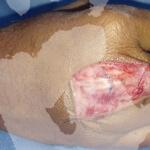Nurturing Your Hand's Recovery What to Expect After Surgery
Recovering from hand surgery is a vital stage that requires careful attention to postoperative instructions to ensure the best healing and functional outcomes. The details of your recovery will depend on the type of hand surgery and your unique circumstances. Here’s what you can anticipate in the recovery process:
Right after Surgery: Taking the First Steps
– Following surgery, you’ll spend some time in a recovery area where medical staff will keep an eye on your condition as you wake up from anesthesia.
– Pain management is crucial, and your surgeon may prescribe medications to help ease postoperative discomfort.
– To reduce swelling and discomfort, keep your hand elevated above your heart level and use ice packs as instructed.
Caring for Your Incision: Wound Wisdom
– Follow your surgeon’s advice on caring for your surgical incision. Keep it clean and dry to minimize infection risks.
– Regularly change dressings as directed and be watchful for signs of infection, such as increased swelling, redness, warmth, or pus.
Keeping Things Still: Immobilization Tips
– Depending on your surgery, you might have a splint, cast, or brace to immobilize your hand and protect the surgical site. Follow your surgeon’s instructions on wearing and caring for this device.
Regaining Movement: The Role of Physical Therapy
– Physical therapy may be recommended to restore hand function, strength, and range of motion.
– Attend all therapy sessions and perform prescribed exercises at home. Gradually increase exercise intensity under your therapist’s guidance.
Medication Matters: A Pill for Every Ill
– Take prescribed medications, including pain relievers, antibiotics (if prescribed), and any other medications to prevent complications.
Check-Ups and Adjustments: Follow-Up Appointments
– Attend all scheduled follow-up appointments with your hand surgeon. These visits allow your surgeon to check your progress, remove sutures or staples, and make any needed adjustments.
Gradual Return to Normal: Taking it Step by Step
– Your surgeon will guide you on when to start gradually resuming normal activities. Follow these recommendations to avoid stress on healing tissues.
Detecting Issues: Stay Alert to Complications
– Watch for signs of complications, like infection, excessive bleeding, or changes in sensation or circulation. Contact your surgeon if you notice any concerning symptoms.
Eating and Drinking Right: Supporting Healing with Nutrition
– Maintain a balanced diet and stay hydrated to support the healing process.
Rest and Patience: The Healing Formula
– Hand surgery recovery takes time. Be patient with yourself and allow your body the rest it needs to heal.
Remember, every recovery is unique, and your surgeon will tailor guidance to your specific situation. Follow their advice closely, and don’t hesitate to reach out if you have any concerns.





